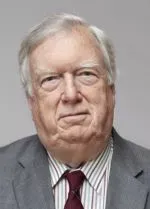Research Areas
Edward W. Schlag carried out the first applications of static reaction theory in quantum form to chemical reactions and was able to show that, contrary to the assumption of the generally valid stress theory, a reaction involves small ring molecules such as B. Cyclopropane can close again. Dr. Ahmed Zewail confirmed this in direct measurements and received the Nobel Prize in Chemistry in 1999. Later, Edward W. Schlag carried out the first experiments to measure rate constants of excited molecules in the isolated system without external disturbances and at different energies, which form the basis for the theory of radiationless processes. He was also intensively involved in the development of new spectroscopic methods, which were used in a wide variety of research laboratories around the world. Especially with REMPI spectroscopy, which he developed at the same time as Richard B. Bernstein, it was possible to show that resonant intermediate states can lead to the sharp selection of molecular spectra. Edward W. Schlag also discovered that highly excited Rydberg states - contrary to previous opinion - are not short-lived, but extraordinarily long-lived. These were identified and led to a new high-resolution spectroscopy of ions, ZEro Kinetic Energy Spectroscopy (ZEKE). The ZEKE States were founded by Edward W. Schlag with William B. Peatman. The experimental resolution was improved using laser pulse methods together with Klaus Müller-Dethlefs. Edward W. Schlag and his team carried out high-resolution sub-Doppler spectroscopy on molecules and were able to observe very weak rovibronic states and their pairings for the first time in the world. Most recently, he succeeded in detecting extremely fast charge transport in proteins on a femtosecond time scale. Edward W. Schlag has always maintained the quality and originality of his university activities at the highest international level, thereby anticipating the internationalization of research and teaching at the Technical University of Munich that is being sought today by many years. [more...]
